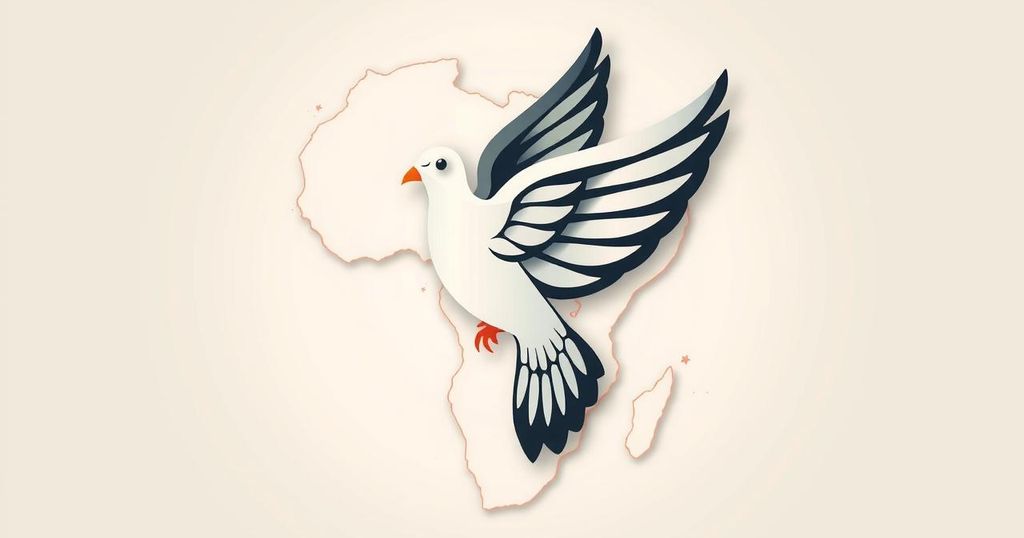In a recent address, President Kagame disputed claims that Rwanda occupies the eastern DRC, asserting the country’s lack of capacity for such actions. He criticized the ineffectiveness of MONUSCO, the UN peacekeeping mission, and emphasized the need to address the root causes of conflict in the region. Kagame also questioned the legitimacy of Congolese President Tshisekedi, highlighting broader issues in the ongoing crisis.
President Paul Kagame of Rwanda recently addressed diplomats in Kigali, where he dismissed accusations that Rwanda occupies the eastern Democratic Republic of Congo (DRC). He emphasized that Rwanda does not possess the capacity to conduct such an occupation and stated that suggestions to the contrary are unfounded. Most of his 90-minute speech was dedicated to discussing the ongoing crisis in Congo.
During his remarks, President Kagame posed a rhetorical question, asking, “Can we really do that?” to highlight the impracticality of Rwanda’s supposed military involvement in Congo. He also criticized the United Nations peacekeeping mission known as MONUSCO, labeling it ineffective in addressing persistent security issues within the mineral-rich eastern region.
Kagame further underscored that the international community has overlooked the fundamental causes of conflict in the DRC. He expressed grave concerns that ideologies related to past genocides persist in the area, stating, “The very people who murdered people here in Rwanda… are still armed.” He argued that addressing these root causes is essential for any significant resolution to the issues at hand.
The Rwandan leader pointed fingers at Congolese President Félix Tshisekedi, questioning his legitimacy and claiming he has not been democratically elected twice. Kagame lamented that despite the global push for democracy, Tshisekedi’s role exacerbates the tensions between Rwanda and the DRC. His comments reflect a broader critique of both local and international handling of the regional crisis.
In conclusion, President Kagame’s statements reflect Rwanda’s position on its involvement and the broader DRC conflict while criticizing the effectiveness of international peacekeeping efforts. His emphasis on addressing the underlying issues of conflict signals a call for greater accountability and proactive measures to ensure lasting peace in the region.
The ongoing conflict in the eastern DRC has its roots in a complex history marked by violence and instability. Rwanda has frequently been implicated in the DRC’s troubles, leading to accusations of occupation. The United Nations peacekeeping mission in the DRC, MONUSCO, was established to help address these issues, but its effectiveness has been widely questioned. President Kagame’s address highlights Rwanda’s frustration with the international community’s approach to the crisis, particularly regarding the acknowledgment of underlying issues that fuel conflict.
President Kagame’s denial of Rwanda’s occupation of eastern DRC comes amid growing frustrations regarding international peacekeeping efforts. His insistence on addressing root causes of conflict and questioning the legitimacy of local leadership serve as critiques of both Congolese authorities and the international community. Ultimately, his statements call for a reevaluation of strategies aimed at resolving the prolonged crisis in the eastern DRC.
Original Source: eastleighvoice.co.ke






